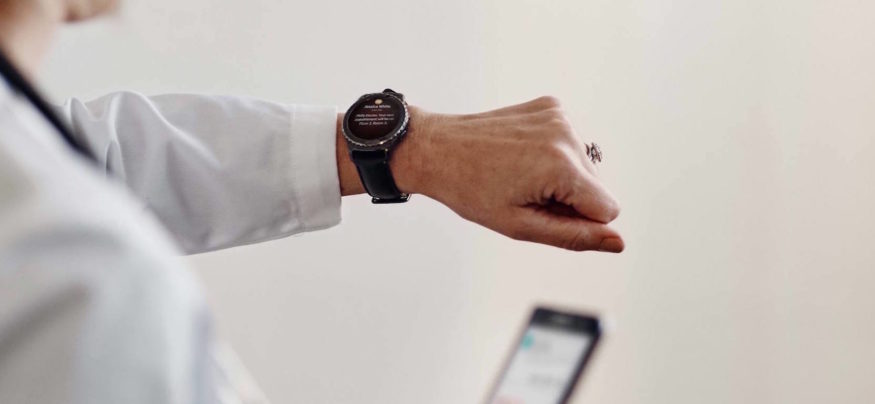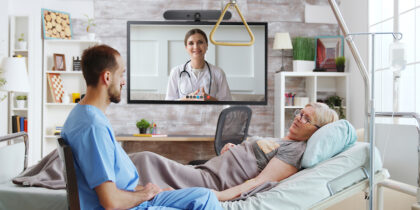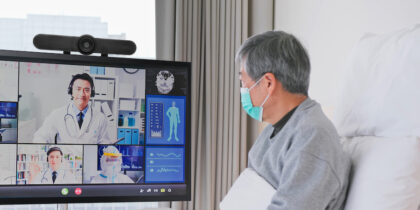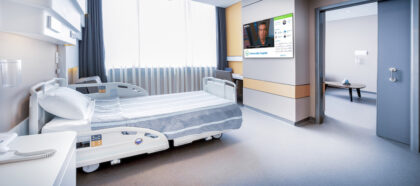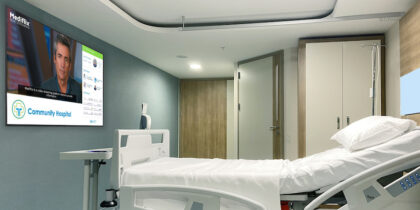Does all the buzz around the top wearable technology in healthcare excite you? Well, get ready for some very interesting changes.
The healthcare industry is being pushed by multiple forces into an era where wearables will play an increasingly crucial role in the very way we define care. This means that every wearable innovation is a positive contribution to a culture of ingenuity that contributes to solving the healthcare puzzle.
At the most recent CES 2016, healthcare wearables stepped into a new age, as highlighted by InformationWeek. To help give you a feel for the potential impact of some of the new wearable technologies out there, here is a list of the top devices featured at the conference.
For Empowering the Consumer
Wearables started with consumers in mind, and these products are keeping up the tradition.
Chronic Pain Management via Infrared Light Therapy
LumiWave by BioCare Systems
As the world spends more time sitting and hunched over devices, chronic pain is becoming an increasing health issue. BioCare is addressing that issue with its LumiWave light therapy solution. The wearable uses infrared light to penetrate tissue and cause the body to undergo natural pain relief in 20- to 30-minute sessions.
Hearing Aids That Address Mild to Severe Hearing Loss
The LiNX2 by ReSound
The Android app allows users to adjust not only volume on hearing aids, but also more sophisticated sound elements like bass and treble. This increased flexibility promises to be a capable tool in an era of patient empowerment, especially as healthcare braces for a booming, tech-friendly senior population.
Speed and Form Tracking During Resistance Exercises
GYMWATCH by GYMWATCH
This wearable sensor may seem less serious than some of the other CES highlights, but don’t underestimate it — injuries during exercise are all too common. GYMWATCH is worn on the arm or leg while you perform resistance training, where it monitors the range of motion and strength used during each exercise.
Clothing That Does the Work of Traditional Wearables
Smart shirts by Hexoskin
Hexoskin takes the awkwardness out of wearables by incorporating the technology into traditional clothing items. The shirts still measure breathing, steps, calories, sleep and heart rate, but do so in a less obstructive way by pairing with the users smartphone.
For Connecting With Clinicians
These solutions still center on the consumer, but feature top wearable technology that allows for greater connection with clinicians and caregivers.
Clinical Assessment of Eyesight and Concussions
Neuro Vision by RightEye
With concussion awareness in professional sports spreading to the amateur and juvenile ranks, fast assessment of brain trauma is a game-changer. RightEye’s tool tests eye-tracking to reveal the extent of potential brain trauma in just one minute and has applications outside the sports world.
Prescription Cardiac Activity Monitor
Rhythm by iHealth
This clinician-focused wearable is one of the latest entrants in the battle against heart problems. Rhythm is essentially a smart, wearable EKG/ECG solution. It is made up of a flat sensor that attaches to a three-electrode patch that the user wears on their sternum.
Smart Case and App for EpiPen® Emergencies
The Veta Smart Case for EpiPen® by Aterica Digital Health
This offering from Aterica holds one EpiPen® and is connected with a mobile app that is downloaded by users. The app contains multiple functions to help patients and their friends, families and caregivers stay better prepared for an emergency.
Continuous, Remote Temperature Monitoring
TempTraq Connect by Blue Spark Technologies
This entrant won the CES Innovation Award, and with good reason — it gives caregivers and parents the ability to track real-time temperature data from anywhere through use of their TempTraq Connect service. The Bluetooth-connected sensors continuously collect temperature data, and this information allows caregivers to make more informed treatment and care decisions.
Blood Pressure Monitoring With Style
Project Zero by Omron Healthcare
This is a player who’s a true hybrid. Omron is bridging the clinical-consumer divide with its Project Zero blood pressure monitors.
The sleek band inflates around the wearer’s upper arm and allows for tracking blood pressure over time. This wearable has also received approval by the FDA — a point that will become more important as the accuracy of wearable monitoring comes under increased scrutiny.
For now the line between consumer-focused and clinician-targeted wearables is clear, but as the sector continues to develop, prepare to see the distinctions blur and partnerships increase between traditionally clinical- and consumer-focused players.
